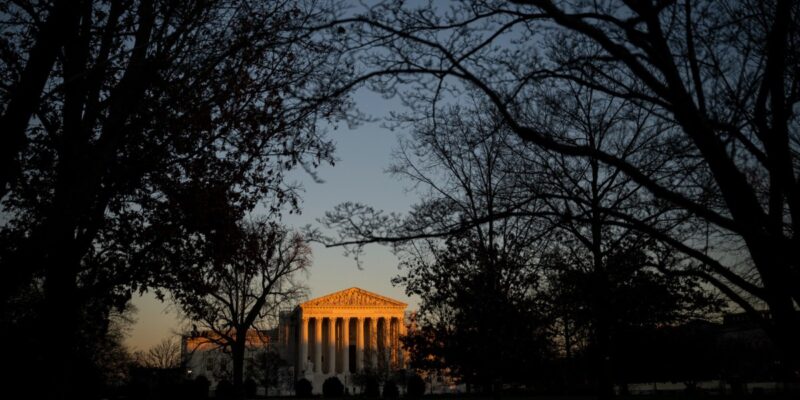
Idaho has among the strictest abortion bans in the country. It’s so strict, in fact, that in 2022, the Biden administration sued the state, arguing that it violates a federal law regulating medical emergencies. The legal battle went all the way up to the Supreme Court, which said on Friday that Idaho’s law could go into effect—at least until the court reviews the case in April.
In Idaho, it’s illegal to perform an abortion—punishable by up to five years in prison—except when “necessary to prevent the death of a pregnant woman.” But doctors have faced confusion over when, if ever, they can step in to perform emergency abortions: What if, as US Solicitor General Elizabeth Prelogar poses, a patient’s condition isn’t life-threatening, but could become so? How long are doctors supposed to watch their patients’ conditions deteriorate before stepping in?
“Doctors in Idaho are afraid,” Julie Lyons, a family physician who sued the state over the law, told the Idaho Capital Sun in December. “We are afraid to provide simple obstetric care because of the fear that what we do with our patient could lead to prosecution.” Similarly, an Idaho OB-GYN told the Washington Post following the court’s decision on Friday, “I could take care of a patient in [a life-threatening] scenario tomorrow—and now I have to wait for months to figure out what I can do. It just makes me question what I am doing in this state anymore.”
It’s not just Idaho. As my colleague Madison Pauly wrote in July 2022:
The ambiguity in Wisconsin’s state abortion ban, for instance, has left doctors like Abigail Cutler, an OB-GYN in Wisconsin, in an impossible bind. Wisconsin’s law, written in 1849, allows abortions to “save the life of the mother.”
“Where’s that line?” Cutler asks. “How close does a patient need to be? On the brink of death for me to step in and intervene? What if I wait too long and she dies in front of me? Or what if in the eyes of some prosecutor who’s not a doctor, not at the bedside, not staring at the patient bleeding or infected in front of them—to them, what if I intervene too soon, and I’m charged and risk going to prison?”
Wisconsin’s liberal-leaning Supreme Court could soon hear arguments over that state’s law. The Idaho case has been working its way through the federal courts since August 2022, when the Biden administration alleged Idaho was violating the Emergency Medical Treatment and Labor Act, which requires hospitals to treat and stabilize patients in medical emergencies. According to the Biden administration, that includes emergency abortion care. As my former colleague Abigail Weinberg noted at the time, the 2022 lawsuit was the administration’s first legal attempt to rein in a state’s abortion restrictions following the Supreme Court’s decision to end the right to abortion in the US.
“The overturning of Roe v. Wade has enabled Republican elected officials to pursue dangerous abortion bans like this one that continue to jeopardize women’s health, force them to travel out of state for care, and make it harder for doctors to provide care, including in an emergency,” the White House said in a statement on Friday. “These bans are also forcing doctors to leave Idaho and other states because of laws that interfere with their ability to care for their patients. This should never happen in America.”
Now, the question of whether federal law requires abortion to be truly available in emergency cases is in the hands of the conservative majority of the US Supreme Court—the same justices, I needn’t remind you, who overturned Roe nearly two years ago. In the meantime, the law in Idaho and elsewhere couldn’t be more murky.















